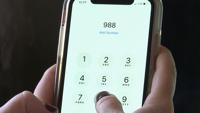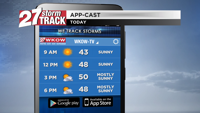MADISON (WKOW) -- UW Health Kids is letting people know what help is available for those struggling with their mental health in recognition of National Suicide Prevention Week.
UW Health said in a news release that suicide rates are rising, and it is the third leading cause of death for young people. But there is hope, according to Dr. Laura Houser, a pediatrician with UW Health Kids and the director of advocacy for the Department of Pediatrics at the University of Wisconsin School of Medicine and Public Health.
“This week is a good opportunity to raise awareness, educate and advocate for mental health resources,” she said. “Because suicide is a serious public health concern that can devastate families and communities.”
A CDC report shows people ages 10 to 24 account for 14% of all suicides, and the rate of suicides in that group increased by nearly 60% between 2007 and 2018.
For teenager's, a CDC and America's Health Ranking report says the suicide rate is higher for boys that girls. Additionally, suicide attempts for high school students who identify as a part of the LGBTQ community are four time higher those who identify as heterosexual.
The current data comes from before the COVID-19 pandemic, but Houser said experts believe rates will increase when new data is added.
With the pandemic’s negative impact on mental health, especially young people, the national 988 Suicide and Crisis Lifeline was established in July.
“The goal of 988 is to provide an effective alternative to 911 and a standard law enforcement response,” she said. “The goal is to have a responder who is a trained crisis counselor who can help with suicide, mental health and substance use-related crises.”
988 is also a resource for parents who are concerned about a child and need resources. Callers will be connected to a local counselor in their own state.
Houser said if parents or caregivers need to access pediatric mental health care, they should talk to their child’s primary care doctor. For additional support, she suggests reaching out to schools or your religious institution.
“If there is a mental health emergency and a child needs immediate help, parents should get their child to the emergency department as soon as possible,” she said.
Houser tells families not to be afraid to talk about suicide because "asking about suicide does not cause someone to suddenly consider it.”
UW Health Kids and American Association of Suicidology recommend parents watch for the following warning signs in children:
- Ideation: talking about or threatening to harm or kill oneself, looking for ways to kill oneself, and talking or writing about death, dying or suicide
- Increased substance use
- Purposelessness
- Anxiety: worry, fear, agitation or changes in sleep pattern
- Feeling trapped, like there is no way out of a bad situation
- Hopelessness
- Withdrawal from friends, family and society
- Anger
- Recklessness
- Mood changes
If you notice any of these signs, Houser suggests calling your child’s doctor or seek help right away.
Houser said that suicide is a fully preventable disease and a fully preventable consequence of a mental health crisis. She said that knowing more about the signs of suicide and how to get help for yourself and others can help people get back to a place where they have more stable mental health where they can enjoy a life again.
“The health and safety of our children should be a top priority,” Houser said. “Though there are many challenges young people face when it comes to mental health, it is hopeful to see more communication about it than ever, and together with new and expanding resources, we can work to prevent suicide."
















